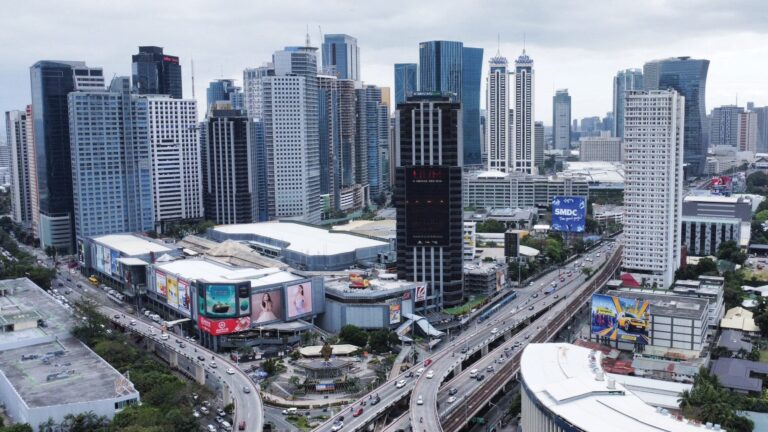I remember it was during my high school days that I really got interested in reading the Manila Bulletin when my social studies teacher required us to read aloud news stories during class discussions on current events.With most of the articles presented in a writing style easily comprehended by 15-year-olds whose native language isn’t English, …
I remember it was during my high school days that I really got interested in reading the Manila Bulletin when my social studies teacher required us to read aloud news stories during class discussions on current events.
With most of the articles presented in a writing style easily comprehended by 15-year-olds whose native language isn’t English, I found reading the Manila Bulletin to be habit-forming. I made sure I got hold of it each time I’d visit the library.
I also had the habit of browsing through the broadsheet whenever I chanced upon it going to or coming from Osmeña High School in Tondo, Manila. I had become friends with a sidewalk vendor who allowed me to read briefly the newspapers, magazines, and comics he was selling.
Among all major broadsheets that time, I think it was the Manila Bulletin that was practically helpful in improving lives. The classified ads section where numerous “help wanted” notices were posted that time had been instrumental in finding jobs for many people, including those who lingered at my friend’s newsstand and also permitted to browse.
I also remember those times in the 60s when, in the wake of destructive typhoons and other natural calamities that hit country, it was the Manila Bulletin that led donation campaigns to raise funds to help disaster victims. Names of donors and amounts donated were posted at the front page starting from the largest donations, apparently encouraging many to donate more. There were also some who requested anonymity.
The Manila Bulletin has indeed made tangible contributions, partnering with various organizations to support disaster relief efforts, community outreach programs, poverty alleviation, and environmental conservation—beyond its vital role of using the power of information in shaping minds through responsible journalism.
Unlike other broadsheets that thrived on sensationalism like tabloids, the Manila Bulletin’s emphasis on positivity and constructive journalism consistently provided a platform for highlighting government programs, thereby leading to more public awareness and encouraging active participation in nation-building.
Although news stories were presented in a positive light, sometimes there’s no escaping the intrinsic impact, and young readers like me then could read between the lines and thresh out the societal challenges. Awareness of such challenges eventually started to stir in me a need to do something for fellow Filipinos and the country.
It was during those times in my early teens when the insightful articles and commentaries I read in the Manila Bulletin made me more aware of the complexities of Philippine society, the various challenges affecting ordinary people, and the urgency to do more to help others and bring about positive change.
I continued to be a habitual reader of the Manila Bulletin when I became a college student taking up economics at the University of Santo Tomas, and the newspaper has kept me well-informed on significant issues at the height of student activism that was sweeping the country, particularly Metro Manila that time.
Authoritarian rule held a firmer grip when I was studying to be a lawyer at the University of the Philippines and was chairman of the College Editors Guild of the Philippines, as well as managing editor of The Philippine Collegian. As a student leader, I remember sending press releases to the Manila Bulletin about our take on various issues gripping the nation.
Even when I became a human rights lawyer, the Manila Bulletin’s focus on factual, balanced, and comprehensive reporting made it a reliable source of information and outlet for grievances of the families of victims of violence and oppression.
But it was during my two terms as senator starting in 1987 that I felt how the Manila Bulletin was indeed true to its slogan as the “exponent of Philippine progress” when the newspaper played a key role in disseminating information about my legislative work.
I’m especially thankful to the late Manila Bulletin reporters Olaf Giron and Mario Casayuran for their tireless efforts to make Filipino readers grasp the significance, objectives, and benefits for the people of the more than 35 bills I authored and were enacted into law.
When I was governor of Laguna afterwards and national president of the League of Provinces and Union of Local Authorities of the Philippines, the Manila Bulletin was always there to amplify our advocacies particularly on local autonomy and decentralization. The public and policy makers were made aware of our various initiatives to fulfill the vital role of local government units in national development, thanks to then executive editor Cris Icban Jr.
The Manila Bulletin’s focus on factual, balanced, and comprehensive reporting made it a reliable source of information and outlet for grievances of the families of victims of violence and oppression.
The Manila Bulletin also became an essential partner of the Department of the Interior and Local Government when I headed it, serving as a platform for publicizing DILG programs and initiatives to promote good governance and enhance public safety.
Even when I retired from government after more than two decades of public service, the Manila Bulletin has remained a part of my life. I am especially grateful to the late Don Emilio Yap who invited me to write this weekly column which started in January 2013.
It gives me great pride to be a columnist of one of the Philippines’ oldest and most influential publications that has stood the test to time in improving Filipino lives and contributing a lot to national development. ([email protected])
(Photo) Former Senator Joey Lina (Photo by Arnold Quizol)






